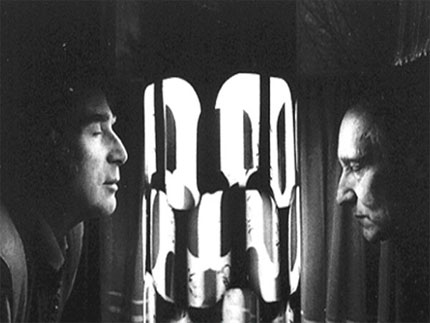User:Stonestone/secondessayfort2stone: Difference between revisions
Stonestone (talk | contribs) No edit summary |
Stonestone (talk | contribs) No edit summary |
||
| Line 1: | Line 1: | ||
<div style="font-family: Times; font-size:18px; border:1px solid black;"> | <div style="font-family: Times; font-size:18px; border:1px solid black;"> | ||
==<span style="font-size:20px;position:relative;font-style:bold;"> | ==<span style="font-size:20px;position:relative;font-style:bold;">Dreamachine -- ''To Create Space-Out''</span>== | ||
===what is | ===Introduction=== | ||
Space-out is a feeling that people can never tell exactly what is the feelings of themselves. The views that people see in front of them when their minds escape from their bodies, are diverse and different from the others and difficult to tell clearly. However, the trigger points of space-out are quite similar, drugs, alcohol even some specific visuals for example. Dreamachine, as one of the most critical patent of triggering space-out, also known as a piece of art work is a good <peeing> | |||
In this essay, I will give my research on creating space-out, | |||
===Flicker=== | |||
“Flicker” is a long-standing term of art in experimental psychology, referring to visual effects induced by flickering lights. In | |||
===How did Flicker machine turn into the dream machine=== | ===How did Flicker machine turn into the dream machine=== | ||
| Line 57: | Line 63: | ||
===Conclusion=== | ===Conclusion=== | ||
* Why+what+how | * Why+what+how | ||
===<span style="font-size:20px;">Reference</span>=== | ===<span style="font-size:20px;">Reference</span>=== | ||
Nic Sheehan, [https://www.youtube.com/watch?v=rJFgNMVePaQ Flicker], 1997, Documentary, 1:12:02<br /> | Nic Sheehan, [https://www.youtube.com/watch?v=rJFgNMVePaQ Flicker], 1997, Documentary, 1:12:02<br /> | ||
Revision as of 11:12, 13 April 2016
Dreamachine -- To Create Space-Out
Introduction
Space-out is a feeling that people can never tell exactly what is the feelings of themselves. The views that people see in front of them when their minds escape from their bodies, are diverse and different from the others and difficult to tell clearly. However, the trigger points of space-out are quite similar, drugs, alcohol even some specific visuals for example. Dreamachine, as one of the most critical patent of triggering space-out, also known as a piece of art work is a good <peeing>
In this essay, I will give my research on creating space-out, ===Flicker===
“Flicker” is a long-standing term of art in experimental psychology, referring to visual effects induced by flickering lights. In
How did Flicker machine turn into the dream machine
Flicker= who (walter)
Dream machine = who (gysin & burroughs)
what does dream machine have to do with spaceout and nosebleed?
conclusion
Space-Out Experience
Brain Waves
- Brief introduction of 4 types of brain waves
- Alpha wave
- Lucid Dream (My personal opinion of Space-out)
- Examples of people's experiences/facts
Dreamachines
In 1960s, the artist Brion Gysin invented Flicker which is also known as Dreamachine, a stroboscopic flicker device that produces visual stimuli. The dreamachine was made from a cylinder with holes in different shapes and sizes in the sides, with a light bulb in the centre of the cylinder. Putting on the record turntable, rotating at 78 or 45 revolutions per minute, allows the light to come out from the holes at a constant frequency of between 8 and 113 pulses per second. This range corresponds to alpha waves, electrical oscillations normally present in the human brain while relaxing.

From one of Brion's diary reports in 1958, he wrote that he had been sleeping on a bus, leaning with his head against the window pane. On passing by a row of trees, sunlight came flickering through and he started to hallucinate:
''An overwhelming flood of intensely bright patterns in supernatural colours exploded behind my eyelids: a multi-dimensional kaleidoscope whirling out through space. The vision stopped abruptly when we left the trees. Was that a vision?''
COMMENTS: the poet Allen Ginsberg wrote about the Dreamachine: ‘I looked into it – it sets up optical fields as religious and mandalic as the hallucinogenic drugs – it’s like being able to have jewelled biblical designs and landscapes without taking chemicals’ Concepts of Dream Machines 1.How it makes efforts on brainwaves; 2. Relationship with Lucid Dream;
Other Works of Space-out Experiences (spacious/light installations)
- James Torre (volcano and others)
- Sun
- Onion Lights
- Bi-Assosiation Images
Nosebleed
- Space-out of me
- Specific Prototype (what)
- Concept of Images :(--->1. Information-Enfropy; Figue-Ground; Signal-Noise... 2.Skies; 3. Relationships between it and above works+concepts)
- Concept of Audios: (--->1. Amient Music and environment sounds...; 2. How it works on images; 3. Relationships between it and above works+concepts)
Feedback from the Others(will be here in the near future)
Conclusion
- Why+what+how
Reference
Nic Sheehan, Flicker, 1997, Documentary, 1:12:02
B.C. ter Meulen D. Tavy B.C. Jacobs, From Stroboscope to Dream Machine: A History of Flicker-Induced Hallucinations, Eur Neurol 2009 pp316–320
Thomas Budzynski, Ph. D., The Clinical Guide to Sound and Light, 2006
David Siever The Application of Audio-Visual Entrainment for the Treatment of Seniors 2004
Luciana Haill ICT & Art Connect : Revelations by Flicker, Dreamachines and Electroencephalographic Signals in Art
http://www.permuted.org.uk/Flickers.htm
